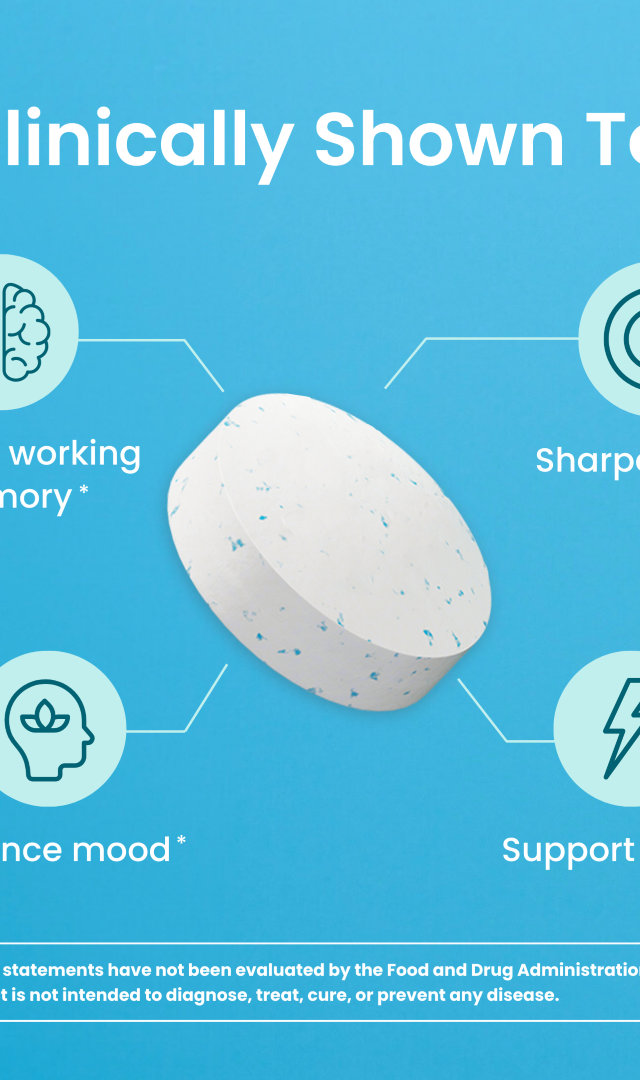Do you wake up every morning feeling like you haven't slept a wink? Do you find yourself nodding off at your desk or struggling to stay awake during meetings? If you answered yes, you're not alone. Many people experience fatigue and a lack of energy throughout the day, and it can be frustrating and debilitating. But fear not, as we're here to help. In this article, we'll explore the top reasons why you might be feeling tired all day and provide practical solutions to help you feel more energized and productive. So, let's dive in and discover the secrets to banishing fatigue and feeling your best all day long.
1. Lack of Sleep:
One of the most common reasons for feeling tired all day is a lack of sleep. Adults need between 7-9 hours of sleep each night to function at their best, but many people fall short of this. There are several reasons why people might not be getting enough sleep, including stress, an irregular sleep schedule, and sleep disorders such as insomnia or sleep apnea.
To combat a lack of sleep, it's important to prioritize a consistent sleep routine. Try to go to bed and wake up at the same time each day, even on weekends. This can help regulate your body's internal clock, making it easier to fall asleep and wake up feeling rested.
Reducing stress before bedtime can also be helpful. Try practicing relaxation techniques such as deep breathing, yoga, or meditation to calm your mind and body. Additionally, avoiding caffeine, alcohol, and electronics before bedtime can improve the quality of your sleep. For more tips, read our article The Role of Sleep and Stress Management in Brain Health.
If you're still struggling with sleep despite making these lifestyle changes, it may be time to see a healthcare professional. They can diagnose any underlying sleep disorders and provide treatment options to help you get the restful sleep you need.
In short, a lack of sleep can have a major impact on your energy levels and overall well-being. By prioritizing a consistent sleep routine and addressing any underlying sleep disorders, you can wake up feeling refreshed and ready to tackle the day.
2. Poor Diet:
Another common reason for feeling tired all day is a poor diet. The food we eat provides the fuel our bodies need to function properly, and a diet lacking in key nutrients can leave us feeling sluggish and fatigued.
One of the biggest culprits of a poor diet is consuming too much processed and sugary foods. These types of foods cause a rapid spike in blood sugar levels, followed by a crash that can leave you feeling tired and lethargic.
To combat this, it's important to prioritize a balanced diet rich in fruits, vegetables, lean proteins, and whole grains. These types of foods provide a steady source of energy throughout the day, keeping you feeling alert and focused.
It's also important to stay hydrated by drinking plenty of water throughout the day. Dehydration can lead to feelings of fatigue and brain fog, so aim to drink at least eight glasses of water per day.
If you're struggling to make dietary changes on your own, consider speaking with a registered dietitian or healthcare professional. They can provide personalized recommendations based on your specific needs and goals.
In summary, a poor diet lacking in key nutrients can contribute to feelings of fatigue and low energy throughout the day. Prioritizing a balanced diet rich in whole foods and staying hydrated can help boost your energy levels and improve your overall health.
3. Dehydration:
Dehydration is another common reason for feeling tired all day. When your body doesn't have enough water, it can lead to feelings of fatigue, weakness, and dizziness.
One of the simplest ways to combat dehydration is by drinking enough water throughout the day. Aim to drink at least eight glasses of water per day, and more if you're physically active or in hot weather.
It's also important to pay attention to the signs of dehydration. Symptoms include dry mouth, dark urine, headache, and fatigue. If you experience any of these symptoms, it's important to drink water and other hydrating fluids like sports drinks, coconut water, or herbal teas.
Additionally, certain foods can help you stay hydrated, including watermelon, cucumber, celery, and citrus fruits. These foods have a high water content and can help you stay hydrated throughout the day.
If you're struggling to stay hydrated despite making these changes, consider speaking with a healthcare professional. They can help you identify any underlying health conditions that might be contributing to dehydration and provide personalized recommendations for staying hydrated.
Overall, dehydration can leave you feeling tired and fatigued throughout the day. By drinking enough water, eating hydrating foods, and paying attention to the signs of dehydration, you can improve your energy levels and feel your best.
4. Lack of Physical Activity:
A lack of physical activity is another common reason for feeling tired all day. Exercise is an important way to improve circulation, boost energy levels, and reduce feelings of fatigue. When we don't get enough physical activity, we can feel sluggish and lethargic.
To combat a lack of physical activity, it's important to make exercise a regular part of your routine. Even just 30 minutes of moderate-intensity exercise per day, such as brisk walking, jogging, or cycling, can have significant benefits for your energy levels and overall health.
If you're struggling to find time for exercise, consider incorporating it into your daily routine. This could mean taking a walk on your lunch break, biking to work, or doing a quick yoga routine in the morning.
Additionally, it's important to prioritize sleep and rest after exercise. Resting your body after physical activity can help you feel more energized and reduce the risk of injury.
If you're struggling to make exercise a regular part of your routine, consider enlisting the help of a friend or personal trainer. They can provide motivation and support to help you stay on track with your fitness goals.
In summary, a lack of physical activity can leave you feeling tired and lethargic. By making exercise a regular part of your routine and prioritizing rest and recovery, you can improve your energy levels and overall health.
5. Stress:
Stress is another common reason for feeling tired all day. When we experience stress, our bodies release the hormone cortisol, which can interfere with our sleep and leave us feeling fatigued.
To combat stress, it's important to prioritize self-care and stress management techniques. This could mean practicing relaxation techniques such as meditation, deep breathing, or yoga, or engaging in activities that you enjoy such as reading, listening to music, or spending time in nature.
If you're struggling to manage stress on your own, consider seeking support from a therapist or counselor. They can provide tools and techniques to help you manage stress and improve your overall mental health.
In addition, it's important to prioritize healthy relationships and social connections. Surrounding yourself with positive, supportive people can help reduce stress and improve your overall well-being.
Stress can interfere with sleep and leave you feeling tired and fatigued. By prioritizing self-care, stress management techniques, and healthy relationships, you can improve your energy levels and overall well-being.
6. Medical Issues:
Medical issues can also contribute to feeling tired all day. Certain health conditions can cause fatigue, such as anemia, thyroid disorders, sleep apnea, and chronic fatigue syndrome.
If you suspect that a medical issue is contributing to your fatigue, it's important to speak with a healthcare professional. They can help identify any underlying health conditions and provide personalized treatment recommendations.
In addition, it's important to prioritize self-care and healthy lifestyle habits to help manage the symptoms of any underlying medical issues. This could mean following a balanced diet, staying hydrated, getting regular exercise, and prioritizing sleep and rest.
If you're struggling with a chronic health condition, consider joining a support group or seeking support from a mental health professional. They can provide tools and strategies to help you manage symptoms and improve your overall quality of life.
In summary, medical issues can contribute to feeling tired all day. By seeking medical attention and prioritizing self-care, you can manage symptoms and improve your energy levels and overall well-being.
Conclusion
Feeling tired all day long can be frustrating and make it difficult to enjoy your day-to-day life. However, by addressing some of the common causes of fatigue, you can start to feel more energized and productive. Make sure you're getting enough sleep each night, eating a balanced diet, staying hydrated, and getting enough physical activity. Additionally, try to manage your stress levels and talk to your healthcare provider if you're still struggling with fatigue despite your best efforts. By taking care of yourself and addressing the root causes of your fatigue, you can start to feel more energized and enjoy life to the fullest.
Lastly, it's important to note that everyone's experience with fatigue may be different, and what works for one person may not work for another. It's important to listen to your body and pay attention to what makes you feel more energized and what makes you feel more tired. With a bit of trial and error, you can find the strategies that work best for you.
In conclusion, feeling tired all day can be a common problem, but it's not something you have to accept as a normal part of life. By taking steps to address common causes of fatigue, such as lack of sleep, poor diet, dehydration, lack of physical activity, stress, and medical issues, you can start to feel more energized and productive throughout the day. Remember to take care of yourself, listen to your body, and don't hesitate to seek medical advice if you're still struggling with fatigue despite your best efforts. To read more about this topic, check out our article What Are Some Ways to Function While Tired.
About the Author

Ryan Chen is the CFO and co-founder of Neuro, a gum and mint company that enhances your health and wellness in the most convenient, affordable, and portable way possible.
Despite being injured in a snowboard accident that left him paralyzed at 19, Ryan went on to graduate with degrees in two very different subjects--Economics and Chemistry--and later trained in racing with the US Paralympic team. His strong intellectual background combined with vigorous resilience has earned him recognitions such as Forbes 30 Under 30.
Find him on LinkedIn here:
Ryan Chen






















